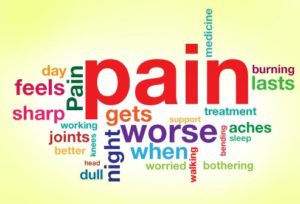Minimizing or eliminating the pain you experience from cancer is something all patients want. If the use of narcotics, opiate, and opioids has not benefited you, or you fear you could be developing a dependency…
Majority of cancer patients experience some level of pain either as a result of their condition or a side effect from the avenue of treatment and care. More often than not, oncologists and other medical professionals prescribe high doses of narcotics and opiates to ease the pain. Though regarded as effective methods for pain management, these forms of medication can be highly addictive and often come with a sleuth of side effects that would only make matters worse for already suffering cancer patients.

Side Effects of Opiate, Narcotic, and Opioid Use
When using opiates, narcotics, and opioids to treat cancer pain, it is imperative for patients to be fully aware of what the side effects are. Short-term effects can include drowsiness, feelings of euphoria, and sedation while long-term effects can include nausea and vomiting, abdominal bleeding, liver and brain damage, dependence, and addiction. However,
diagnosing opioid addiction and other side effects stemming from the use of prescribed medication can be harder in cancer patients who are already physically and mentally debilitated. This is why many are looking for alternative approaches.
NSAIDs
Non-steroidal anti-inflammatory drugs or NSAIDs are another option for treating pain in cancer patients. Their chemical makeup is designed to help ease the pain, reduce fevers, and reduce inflammation. They can be bought over the counter with names like ibuprofen, or aspirin, and prescribed often referred to as Celebrex, Naprelan, Anaprox, Voltaren, and Feldene.
Keep in mind, however, that prolonged use of these medications can lead to bleeding of the stomach and an increased risk of heart attack and stroke.
Acetaminophen
Often combined with other medicines for allergies, a cold, and the flu, acetaminophen is an active ingredient that serves as a painkiller. It can often be found in over the counter brands like Tylenol. It is often used for acute pain in relation to other illnesses, but can also be ideal for treating mild pain for those suffering from cancer, arthritis, or migraines.
While it won’t cause any bleeding of the stomach, prolonged use of acetaminophen or medicines containing them can cause liver damage.
Antidepressants
There are some antidepressant medications that have been prescribed as a means of treating patients who struggle with nerve pain. Unfortunately, tricyclic antidepressants like Trofanil, Pamelor, and Norpramin can be helpful to some but are not as effective in all cancer patients.
Non-Drug Options

There are some cancer patients who are looking beyond the scopes of drugs to treat their pain. With several alternatives and holistic approaches out there, you may be able to find one or a combination of remedies that work. This might include the use of CBD oil, massage therapy, acupuncture, yoga, meditation, and biofeedback. There are some cancer patients who have even benefited from eating or eliminating certain foods from their diet.
Minimizing or eliminating the pain you experience from cancer is something all patients want. If the use of narcotics, opiate, and opioids has not benefited you, or you fear you could be developing a dependency, you might consider other approaches. Be sure to consult your oncologist and team of medical professionals before trying any new regimens to ensure that it won’t alter your treatment.
“This article summarizes the current evidence regarding the use of acupuncture for pain management in cancer patients. It includes a description of how acupuncture is thought to work and what the intervention entails, data on acupuncture for managing pain caused by cancer or by cancer treatment (radiation, chemotherapy, endocrine therapy), how acupuncture is practiced in the US medical system, discussion of safety issues, and practical tips on how to integrate acupuncture into cancer care..”
To Learn More about Chronic Non-Cancer Pain- click now





